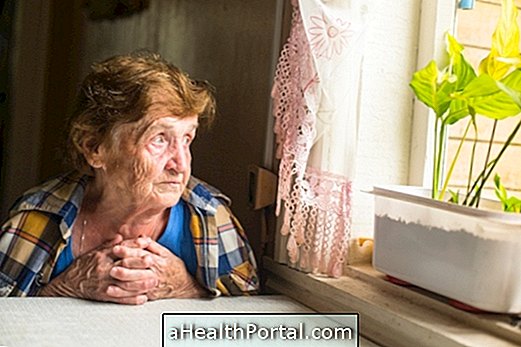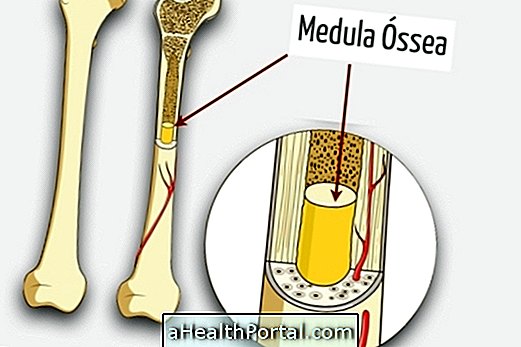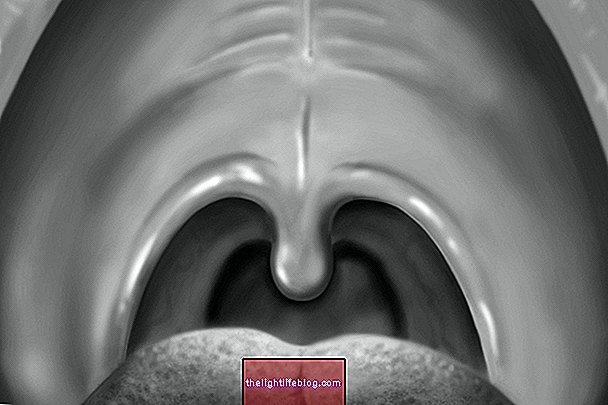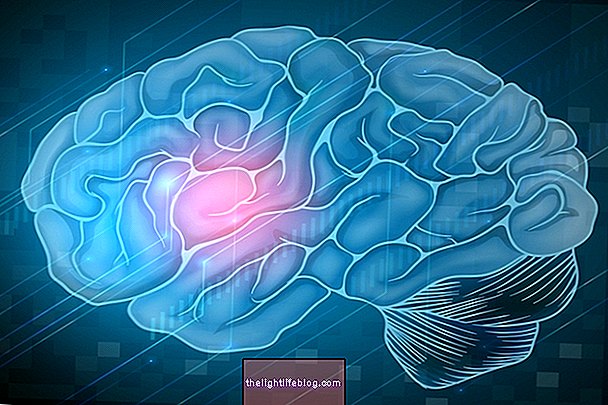The feeling of loneliness, which is when the person is or feels lonely, brings bad consequences to health, because it causes sadness, interferes with well-being and facilitates the development of diseases such as stress, anxiety or depression.
These situations can also cause physical diseases, as they are closely linked to the deregulation of hormones, such as serotonin, adrenaline and cortisol, that affect the person's endocrine and immune system, ie, the body starts to perform activities less efficiently and are more likely to have diseases.
The consequences of loneliness are even greater in the third age, as these people have a greater difficulty maintaining social life, either by the loss of close relatives or by the physical limitation of leaving home and doing activities.

Although there is no absolute proof of cause and effect, studies have already shown that solitude can favor the emergence of:
1. High pressure
People who are lonely are more likely to develop high blood pressure. This can happen due to factors such as the lower control of feeding, the consumption of foods of lower nutritional quality, high in fat and salt, as well as the lower chances to practice physical exercises.
In addition, anyone suffering from depression or anxiety may also have higher rates of high blood pressure, mainly due to the deregulation of hormones like cortisol. It is important that the pressure is within the limits recommended by your doctor, otherwise it may favor the occurrence of heart attacks, stroke, or kidney problems. Learn about natural ways to control high blood pressure.
2. Change in blood sugar
Loneliness may make people more likely to develop type 2 diabetes, as some studies suggest. Emotional diabetes does not exist, but some emotional issues can cause the disease indirectly, either by the increase in the consumption of foods with high sugar or by the deregulation of the production of hormones, such as insulin and cortisol, which are hormones related to control of blood sugar levels.
In addition, some elderly individuals who are living alone may have difficulty maintaining regular diabetes treatment, either by greater difficulty accessing medications or by monitoring glycemic control.
3. Predisposition to the development of cancer
Lonely people tend to develop more cancer, probably because the body finds itself in constant stress, increasing the chances of mutations and proliferation of cancer cells. The lifestyle of the lonely person can also influence, such as overeating, consuming alcohol or smoking.
It has also been shown that people with depression may have more relapses of cancer and, moreover, tend to survive less, which may happen because they have less support during treatment, can not perform treatment well, return and do not participate in social support activities.
4. Stress and anxiety
The feeling of loneliness, as well as depression and anxiety, signal to the brain that the body is under stress by raising the level of the hormone cortisol, which is known as the stress hormone.
High cortisol concentration can lead to loss of muscle mass, learning disability and memory lapses. Check out what are the signs of stress in the body and how to control it.
5. Depression
People who feel lonely are more likely to have depression, which is associated with a sense of emptiness, abandonment, lack of social and supportive living. Thus, people have constant sadness, loss of energy and desire to do day-to-day activities, irritability, lack of appetite or excessive appetite, insomnia or the urge to sleep all the time.
Learn how to differentiate sadness from depression.

6. Insomnia or difficulty sleeping
People who feel alone are more likely to develop insomnia, probably because of psychological issues such as feelings of insecurity and helplessness.
So an accepted hypothesis is that the lonely person is always on alert because he feels vulnerable to everything, so the body remains in a state of constant stress, unable to relax. These people also often have difficulty reaching a deep sleep, wake up several times at night or simply have difficulty sleeping.
7. Pain in muscles and joints
Muscle and joint pain may be a result of a lack of physical exercise or even poor posture, since normally those who feel alone may not feel like doing ordinary activities or being outdoors, simply because they are alone.
Check out the best exercises for seniors to practice.
8. Increased chance of drug, alcohol and cigarette addiction
Loneliness is associated with a greater risk for developing chemical dependencies, drugs, alcohol and cigarettes, probably due to the pursuit of feeling of pleasure or immediate relief. The lack of support from friends and family to combat addiction also makes it difficult to quit.
How to combat the consequences of loneliness
To prevent loneliness from persisting and can cause or worsen many diseases, it is important to have attitudes that move away from this situation and increase social interaction, such as practicing a hobby, enrolling in a course or adopting an animal, for example.
The support of the family, if possible, is very important to help the person, especially when elderly, to overcome this feeling. Learn more about other attitudes to combat loneliness.
When loneliness causes physical symptoms, or when it is associated with other symptoms such as sadness, loss of appetite, altered appetite or altered sleep, it is important to seek the support of a psychologist and psychiatrist, as it may be associated with other conditions of health, such as depression.


























